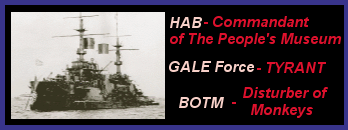Darth Wong wrote:Illuminatus Primus wrote:Well this rests on two assumptions, 1.) that skyrocketing price rationally leads to lower consumption (a dubious assertion with a good whose social cost is largely due to his addictiveness), and 2.) that the risk to society associated with a given volume of alcohol production remains the same - it does not.
Declining tobacco sales in Ontario have been correlated to price increases. Observation would seem to contradict your assertion.
And the increase in prices I imagine is correlated with an increased social stigma on smoking which may prevent people from ever starting. You have to untangle the causal chains before that correlation means anything
There are social forces involved to a large degree. In the case of alcohol, people use it for many reasons, and the reasons a person drinks will determine how they react if the substance were to become unavailable somehow (method irrelevant)
Social drinkers: People who drink because it is expected of them socially. This includes most college students, the majority of working adults, etc. Some other activity would probably become a substitute for alcohol. If the decrease of social inhibitions is what primarily drives the social expectation of drinking, then some other mild inhibition-releasing drug will probably be substituted. Potentially something made for that exact purpose. If the reason social drinkers exist is purely cultural then a benign activity will be substituted. Like drinking Sprite.
Problem Mitigation: People who drink primarily for this reason are the people who have a lot of "problems" and use alcohol as a medication. This includes bi polar individuals, schizophrenics, and people down on their luck. They will probably substitute other drugs, usually downers.
Those are just a couple examples of what could happen.
So an unspecified number of "crooked cops and judges" are necessarily worse than a million deaths over 12 years? How do you arrive at this conclusion?
Assumption: We use a prohibition model. I know it is not what you specified, but I thought this was worth looking at.
It is not necessarily worse, but it could be. I would take a more holistic outlook based upon broad societal consequences. A corrupt political and judicial system does more than cause deaths, which it certainly does.
You end up with rigged elections, rigged trials, unchecked racketeering, (more)brutal prostitution rings, increased human trafficking, slavery. The list goes on. Too much of it and the system sill cease functioning entirely and we could descent into de facto anarchy.
One effect, in this case the corruption of judges and police can have numerous secondary effects in many realms of society. Economics (you will get increased wealth concentration in the hands of powerful business interests and those who are no longer worried about bribing judges for example) corrupt politicians who make decisions based upon flat out bribes (Oh look the building codes just got deregulated)
I think that damage... society chaos... outweighs a million deaths over 12 years.






